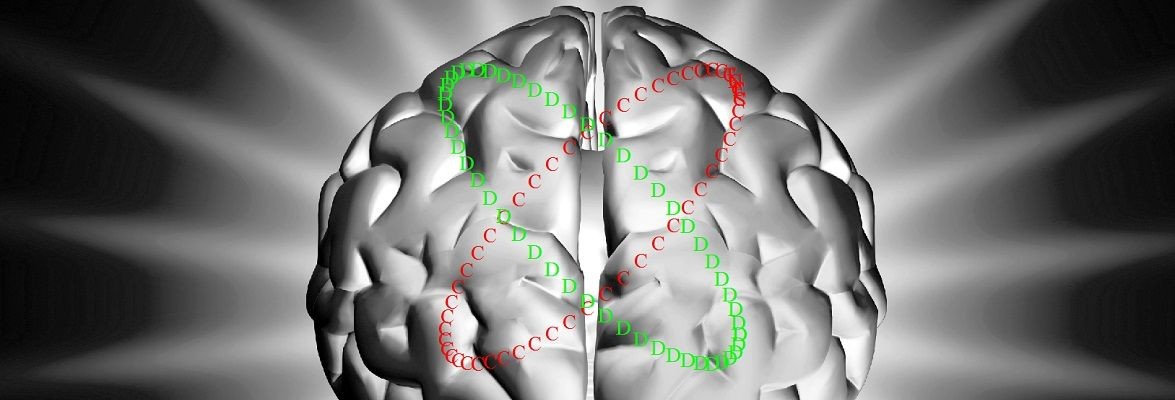“The one to the right”, I responded.
My wife was asking me which curtains I would prefer to buy for our living room. I must admit it, I did not have much preference for either, both were nice and my answer was quite random. Maybe one of them gave me some triggering association guiding my choice, or the decision was the random act of a single neuron firing in my brain. Anyway, I usually give little thought to curtains.
I have in a previous post, Be creative – Use your noisy brain, written how decision making, alertness, creativity, in fact depend on a certain randomness in our brain signals. Our neurons are constantly sending signals at a certain rate to other neurons, even in a resting state, and it turns out that this random and noisy firing of the neurons has many positive effects on us (in addition to some less beneficial), for instance, it may help men choose curtains…
Does this mean that I lack free will? Are all my decisions just results of random neuronal firings?
What about the input signals from my senses, leading to my perceptions of the world. Are they random or deterministic? In another post, Your random attention, I wrote how our unconscious selves filter and alter our perceptions of the world in a bottom-up manner, from, to us seemingly random input signals to pre-processed data, and how our personalities, our emotions, our inherent values, and interest change the way we perceive the world.
Raw input signals from the senses are sent from the sensor cortical areas towards the prefrontal cortex (where our working memory is), but contextual information from the hippocampus and the basal ganglia and emotional information from the amygdala is changing the way the sensory data are perceived.
This data pre-processing step is hard-wired in the brain in neural networks with synaptic connection strengths based on learning from previous experiences and decisions. From all incoming and pre-processed data we sample at any given moment a point of attention as, described in Your random attention.
So there certainly is a level of randomness to what we perceive and become consciously aware of, and so far I have presented little evidence of free will, because even our attention point is randomly sampled.
Do we have free will?
This question has troubled philosophers through centuries, and even now in a time where neuroscience and neuropsychology make astonishing discoveries of neuronal functioning, science philosophers do not quite agree.
Is everyt hing random? Or on the contrary, is it all faith?
hing random? Or on the contrary, is it all faith?
According to the deterministic reductionists the worlds is deterministic, down to the interaction of elementary particles, and there is no other causality than that found at this fundamental level. Tse (2013), whose opinion is another, state on behalf of the deterministic viewpoint that:
“If determinism is true, we have only one possible course of action at any moment, so we would not have acted otherwise and have no alternatives to choose from.”
Hence, a world without random events is incompatible with the notion of free will. What about the other extreme? Is everything random?
The advocates of pure in-determinism claim that free will is non-existent due to a purely stochastic world. It really sounds logical, if everything were random, all input signals to our senses would be random, all signal transmissions between our neurons would be random, and, hence, so would all our decisions be!
This view gained increased strength by the publishing of results indicating that our unconscious make our decisions for us even before we become consciously aware of them (Soon et al, 2008). Are we fooled to believe that we are in conscious control over our actions, whereas the unconscious makes the decision for us, and perhaps on a purely random basis?
So, where does this leave us? Neither pure determinism, nor pure in-determinism allows free will to exist. Are we in conscious control of our decisions? Even philosophers like David Hume did not see any solution to this problem.
Is there any “in-between” pure determinism and pure randomness, which allows free will?
Yes, there is statistics…
Free will is “top-down” statistical categorization of future “bottom-up” random input signals. That is, there are sequentially updated classification models, which map random perceptions into consciously pre-determined categories, like types of decisions and behavior. Tse (2013) refers to this as criterial causation in his highly recommendable book “The neural basis of free will”.
To be more specific, decision networks are assigning input signals (perceptions) to categories according to preset criteria (coded by synaptic weights). These criteria have previously been consciously defined in a top-down manner and are modifiable for the future.
For example, if the perceived input patterns meet certain criteria, we have decided to act so and so. This is free will! We consciously choose the criteria, which are to be met by future input signals for the various decision outcomes.
Recent research (Schultze-Kraft et al, 2015) indicates that we may change our criteria for decisions down to 200 milliseconds into the future. This is a result which more or less contradicts the previous experiments indicating that our unconsciousness decides even seconds before we become consciously aware of our decision, which led to enforced doubts about free will.
However, the time interval for alteration of the decision criteria is not important for the existence of free will, only the fact that we can change the criteria for future inputs, since this sets the strengths of the connections in the decision network. In a way we may consider the criteria of the decision network as “accumulated free will”, since these have been constantly modified throughout our lifetime, or as long as a specific kind of decision has been relevant.
Free will is thus existent as a statistical classification model based on neural networks. It transforms random input into preset decision categories, which we constantly optimize to meet our standards.
Curtains
“But, I think the gray curtains match better the furniture”, my wife replied.
With this new and relevant information I suddenly got an opinion about curtains, taking either a decreased, or increased liking to gray curtains. I updated my curtain categories for future visits to the store, and I made a conscious decision of how to alter the weights of my statistical model.
We have gray curtains in our living room, by the way…
References
Tse, Peter. The neural basis of free will: Criterial causation. Mit Press, 2013.
Soon, C.S., Brass, M., Heinze, H.J. and Haynes, J.D., 2008. Unconscious determinants of free decisions in the human brain. Nature neuroscience, 11(5), pp.543-545.
Schultze-Kraft, M., Birman, D., Rusconi, M., Allefeld, C., Görgen, K., Dähne, S., Blankertz, B. and Haynes, J.D., 2015. The point of no return in vetoing self-initiated movements. Proceedings of the National Academy of Sciences, p.201513569.


